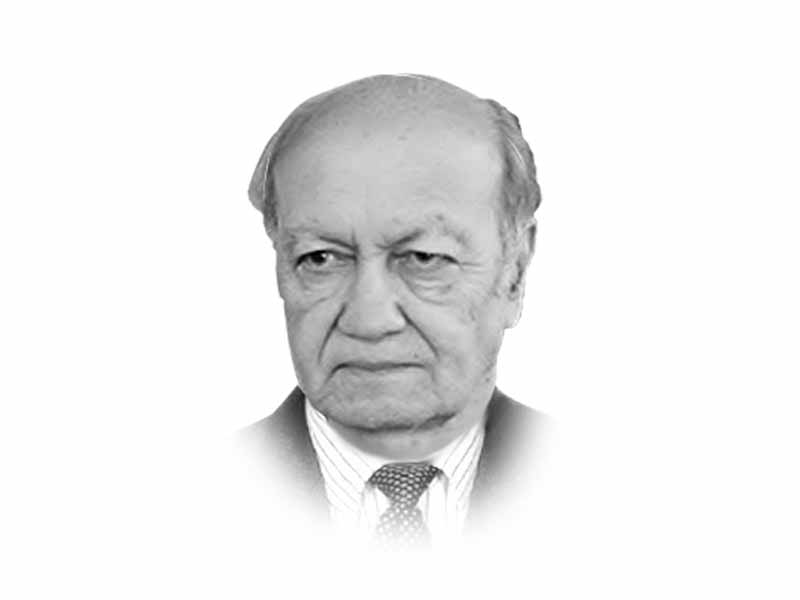
An overview of the progress made so far reveals that advancement on critical areas like introducing reforms in Fata, addressing security and syllabus-related issues in madrassas and controlling the flow of illegal money transactions has been extremely slow or has not even started. The PML-N has reportedly been strongly resisting the plan to take action against militant wings of various sectarian organisations in Punjab because of their close association with the party. Similarly, the PPP and the MQM reportedly keep protecting certain party members who are allegedly involved in money laundering, corruption and other nefarious activities. The security establishment, justifiably, finds this attitude indefensible and against basic norms of governance. At the same time, the establishment also needs to deal more firmly with the Jamatud Dawa and other militant outfits that under the cover of supporting the Kashmir cause, are spreading their own brand of militancy.
To add to our woes, India and Afghanistan are aiding and abetting militant groups in Fata and dissident elements in Balochistan. General Raheel Sharif made sincere efforts at reaching out to President Ashraf Ghani for Pakistan’s support in the fight against insurgency. Regrettably, the attacks on Kunduz, Kabul and recent successes of the Taliban in increasing their area of influence have stalled efforts towards confidence-building between the two nations. The drone attack by the US that killed Mullah Mansoor proved to be another serious setback towards improving relations. Internal divisions within the current Afghan power structure have also contributed towards widening the distrust. As regards India, Pakistan’s forthright support for the current uprising in Kashmir has further strained relations between the countries. Instead of dispassionately addressing the genuine grievances of the Kashmiris, Narendra Modi has taken to deflecting world attention by downplaying the movement, falsely blaming Pakistan for interference and drawing false comparisons with unrest in Balochistan. India has been using dissident elements and spreading its network of spies to destabilise Balochistan as was evident from the presence and subsequent arrest of Kulbhushan Yadav in the province. It is likely that India may step up its subversive activities there and other vulnerable parts of Pakistan to discourage it from morally and diplomatically supporting the Kashmir uprising. Implementation of NAP should help counter India’s designs to destabilise Pakistan. Moreover, the nature of warfare has changed dramatically. Countries do not fight conventional wars anymore and have substituted these with internal subversion and use of proxies to destabilise their opponents. Emergence of hostile non-state actors acting independently or in concert with adversaries are a major threat to Third World countries and our leadership has failed to grasp its intensity and reach.
Military operations in Pakistan have achieved a lot in terms of pushing back militants and denying them space and resources that they enjoyed by establishing their writ in places like Fata. But such operations alone are not enough to defeat ideological and political battles. It is for this reason it is so important that madrassas need to be reformed and the national narrative developed to win the war of ideas. Very little effort so far has gone in this direction. We have to change the extremist mindset that is steeped deep within groups that are engaged in domestic and regional sectarian conflicts. Pakistan is still struggling from the ill-effects of the Afghan jihad and from the activities of militant groups focused on Kashmir. Prolonged periods of military rule in Pakistan has weakened democracy and retarded institution-building. This vacuum was filled with various groups promoting different ideologies. It is crucial that the government focuses on a comprehensive disengagement plan to transform the militant mindset. This remains an important item in the 20-point agenda but has remained neglected so far.
The settlement of internally-displaced persons should be given high priority. Their satisfaction is key to the future of Fata. The military has played a commendable role in rebuilding the devastated infrastructure of Fata but civilian authority has to be established eventually. Implementation of political reforms will give representation to the people of the area and would give them a sense of belonging, which can transform the economic landscape of Fata. Its people have suffered enormously due to the absence of health and educational facilities. The area has remained neglected ever since the creation of Pakistan and is steeped in poverty and neglect. Clearly, a national comprehensive effort is the prerequisite for combating terrorism.
Published in The Express Tribune, August 17th, 2016.
Like Opinion & Editorial on Facebook, follow @ETOpEd on Twitter to receive all updates on all our daily pieces.

1729161093-0/liam-(4)1729161093-0-165x106.webp)


1732603002-0/lamar-(4)1732603002-0-165x106.webp)







COMMENTS (4)
Comments are moderated and generally will be posted if they are on-topic and not abusive.
For more information, please see our Comments FAQ